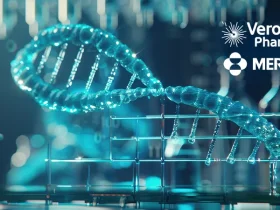Marengo Therapeutics, Inc., a clinical-stage biotech company pioneering a new way to activate T cells by targeting germline-encoded alleles in the Vβ chain of the T cell receptor (TCR) to selectively activate the right T cell subsets to fight cancer, today announced a publication in Science Advances describing the novel immunological effects of its foundational anti-Vβ chain TCR targeting antibodies on human T cells. This unique approach underpins Marengo’s therapeutic T cell platform, which has broad application across a range of diseases. The publication describes observations and insights gained through a collaboration between Marengo scientists and the Kings College London-based lab of Adrian Hayday, Ph.D. FmedSci, FRS.
“Professor Hayday and his team are true pioneers in advancing the field of innate TCR biology, particularly in the area of gamma delta T cells,” said Andrew Bayliffe, Ph.D., Chief Scientific Officer of Marengo. “Through this collaboration, we have extended the concept of innate TCR engagement to αβ T cells. The resulting learnings will be crucial as we progress our platform and pipeline of broad Vβ T cell therapeutics.”
The publication, titled “Innate TCRβ-chain Engagement Drives Human T cells Toward Distinct Memory-like Effector Phenotypes with Immunotherapeutic Potentials,” highlights the distinct binding modes of Marengo’s Vβ chain-targeting antibodies and their effects on differentiation states of human T cells. Using a battery of immunophenotyping and molecular approaches, researchers in Professor Hayday’s Immunobiology Lab at King’s College London revealed a unique signature induced in subsets of human T cells treated with Vβ chain-targeting antibodies.
This population of cells show hallmarks of both proliferative memory T cells, and effector T cells that are highly distinct to states induced by other non-clonal TCR activators such as anti-CD3e antibodies and Vβ chain‑targeting bacterial superantigens. Further mechanistic investigations revealed diverse transcriptional changes associated with the changes in T cell phenotype that suggest a fundamental reprogramming of T cell differentiation by Vβ chain-targeting antibodies.
“We undertook these studies to tackle a previously unanswered question; namely, will TCR∝β respond in a distinct and interesting way to stimulating by an atypical mode, that we term ‘innate’. We have discovered that the answer is clearly yes, and we are understandably delighted for cancer patients that this innate response mode may prove therapeutically beneficial,” said Professor Hayday.
This publication follows on the heels of a paper published November 29 in the journal Science Translational Medicine, which further underscores the potential of Marengo’s lead asset STAR0602 and the company’s STAR platform to target and activate subsets of T cells expressing different β chain TCRs.
SOURCE: PRNewswire


































